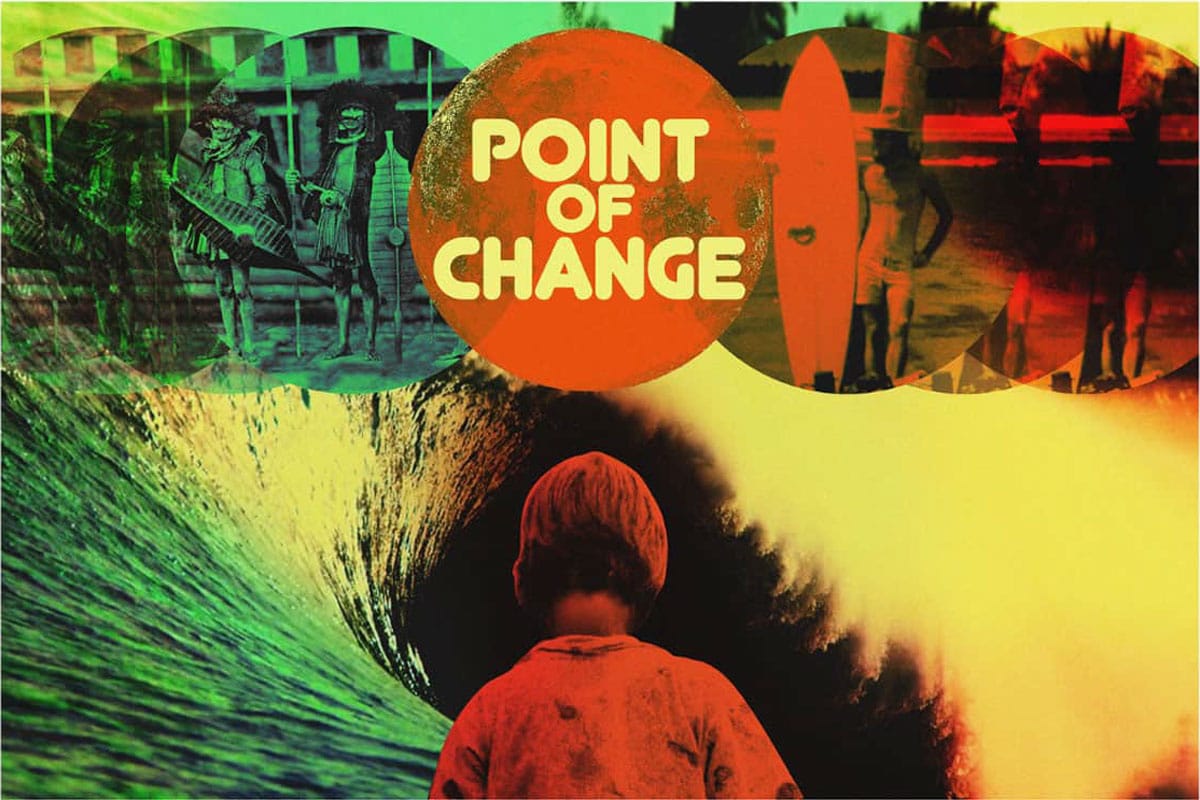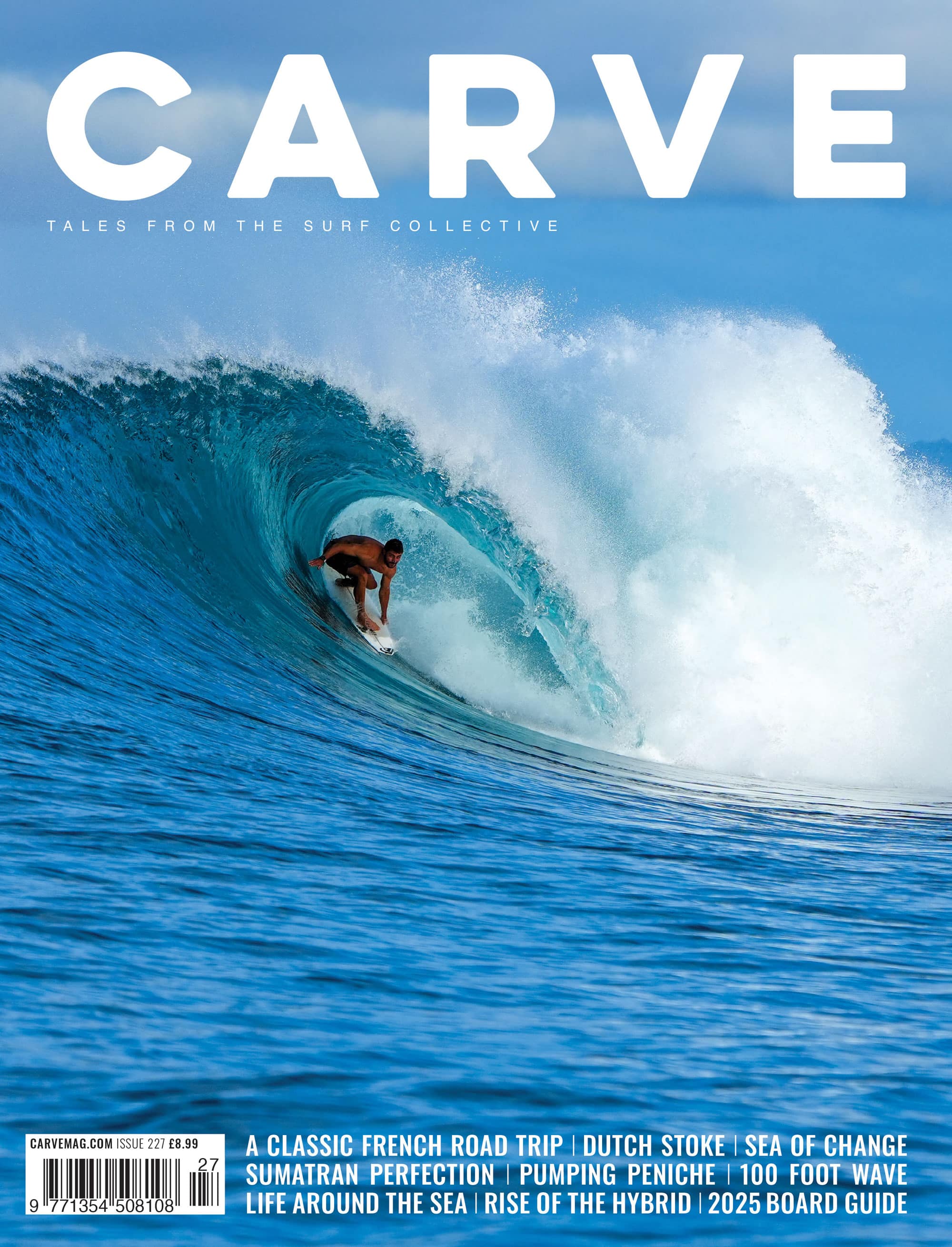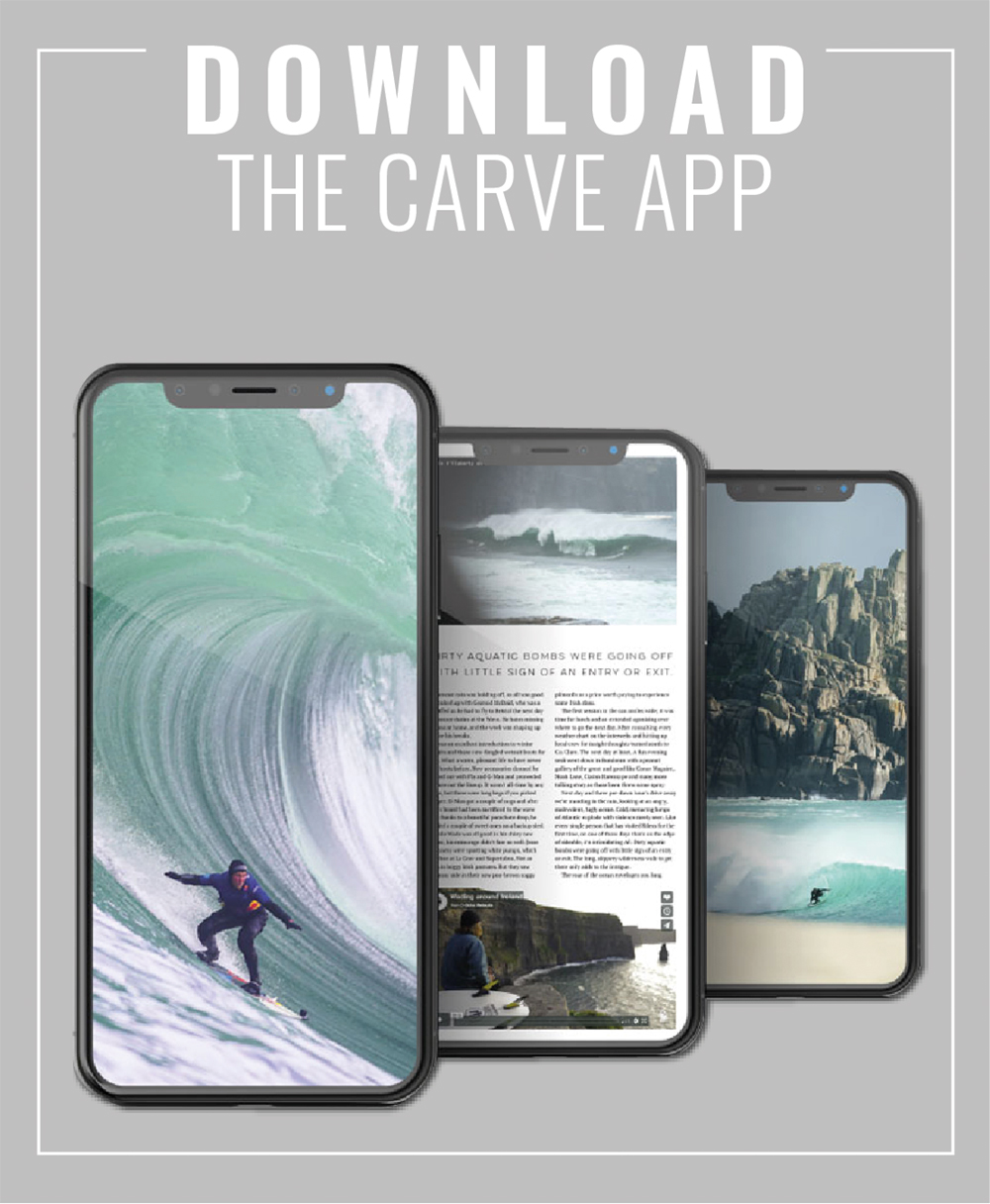
How many hours do you reckon you’ve spent this summer dreaming of rounding a headland only to stumble across that perfect wave, in a hidden corner of paradise and getting to surf it all day long with just one or two friends for company?
Well ‘Point of Change’ from British Director Rebecca Coley might just make you want to recalibrate your fantasies… Chronicling the 1970’s ‘discovery’ of one such perfect wave on the idyllic island of Nias – this multi award winning documentary unravels the unintended and dramatic consequences that followed. Combining previously unseen Super 8 archive, and contemporary interviews with beautiful animation, and featuring the likes of Kevin Lovett, Jamie O’Brien, Laurie Towner, Mark Healey, Billy Kemper, Nathan Florence, Bonne Gea & more, this is a must-see cautionary tale about paradise found and lost. Ahead of a series of very special screenings, including a Newquay Premiere Sunday 1st September London Surf / Film Festival’s Demi Taylor spoke with Director Rebecca Coley about her compelling documentary.
Can you tell me a little about your filmmaking journey.
I grew up by the sea and always loved films and television and writing stories. As a kid we would rent videos from the corner shop and this was the highlight of the weekend, we’d watch them repeatedly. When I got older I begged my dad to get a video camera and he borrowed one from my uncle. My careers teacher suggested I do law or a subject where I would ‘get a job’ so I did that, but when I was studying Law in Liverpool they were making lots of films in the city and so I fell in love with filmmaking again. I just started working on films and making my own, and that was the start of the journey.
Point of Change is an incredible documentary what led you to the story?
I first went to Nias as a surfer twenty years ago now. I spent a couple of months there surfing every day and listening to the locals tell stories and I always wanted to go back one day and make a film. The next time I got back there was after the tsunami and it was shocking to see the devastation first hand. I was with an NGO and I made a little film about the project for the local news back home (ITV regional).
Later, I met Bonne Gea and she totally inspired me. She was sponsored by Billabong and had escaped a life of an arranged marriage where she’d be expected to stay home and raise a family from a young age. We ran a Kickstarter campaign and made a short film about Bonne (Changing Point) and whilst I was there filming I gathered lots more interviews to make the feature film.
For the feature I wanted to tell the story of the first surfers to ‘discover’ the wave, and of course the wave had always been there, but Kevin and John’s story was fascinating and of course led to all these unintended dramatic consequences they could never have foreseen. Kevin Lovett found his old Super 8mm film, we got it telecined and then knew we had a special project – we had this amazing footage from the first time they were there and everything was unspoilt and pristine and it looked like ‘paradise’ to any surfer and so the story began.
Can you tell me a little about your relationship with Indonesia.
On that first trip in 2003 I was returning from a year in Australia on a work visa and I totally fell in love with Sumatra. I was probably partly delaying the reality of going home and I was also fulfilling some travel dreams I had since I was a kid: Surfing perfect waves in board shorts. Going into the jungle and seeing orangutans. When I left there was a flash flood in Bukit Lawang on mainland Sumatra that totally devastated the village where I’d stayed and over 300 people died. I had lots of friends who needed help and who’d lost everything and so we started a fundraiser that led to starting an NGO. We went back out there to assist the community with rebuilding and that led to more community work.
How has Nias changed and how has surf travel changed it?
Lagundri Bay has seen a lot of change, but then it always has. The Point break itself changed after the tsunami, literally, as the reef moved, but the wave has remained and is still world class. Around the Point there’s more development and more buildings and tourists. On the plus side that leads to more opportunity for local people to escape poverty and to get an education and for the younger generation to leave the island. On the other side the environment has suffered with sand mining for the building and the coastal erosion but the younger generation are more mindful and take more guardianship of the Bay so I hope that means there will be some protection longterm.
Having gone through this multi-year process with Point of Change, what advice would you give to aspiring and emerging female filmmakers?
If you want to be a filmmaker it is in you and it won’t go away, so just keep going. Even if you need to take a break sometimes or do something else for a while, don’t worry, you can always come back to it, because that spark inside, that desire to tell a story, that doesn’t go away.
Point of Change has become a member of the Global Alliance for the Rights of Nature (www.garn.org/) and we will offset all our travel with SeaTrees (which is super easy to do). It’s not about being perfect, but it’s about us all doing our own little bit and being more conscious as we live our lives and travel the earth and I hope we will all realise that together as people power is incredible and we are part of nature and by respecting that and giving back, we can all live together.
Point of Change is coming to Newquay Lighthouse Cinema on Sunday 1st September. This very special screening includes a Q+A with filmmaker Rebecca Coley, hosted by LS/FF Director Demi Taylor.


Point of Change: Documentary feature film – Screening at Verdant Taproom Penryn 03/09/24 8pm
Part of an exclusive UK launch screening tour, Soundtrack by Paul Okenfold
Award winning surf film, Bali int film festival, London surf film festival, Byron bay surf film festival, Portuguese international festival





